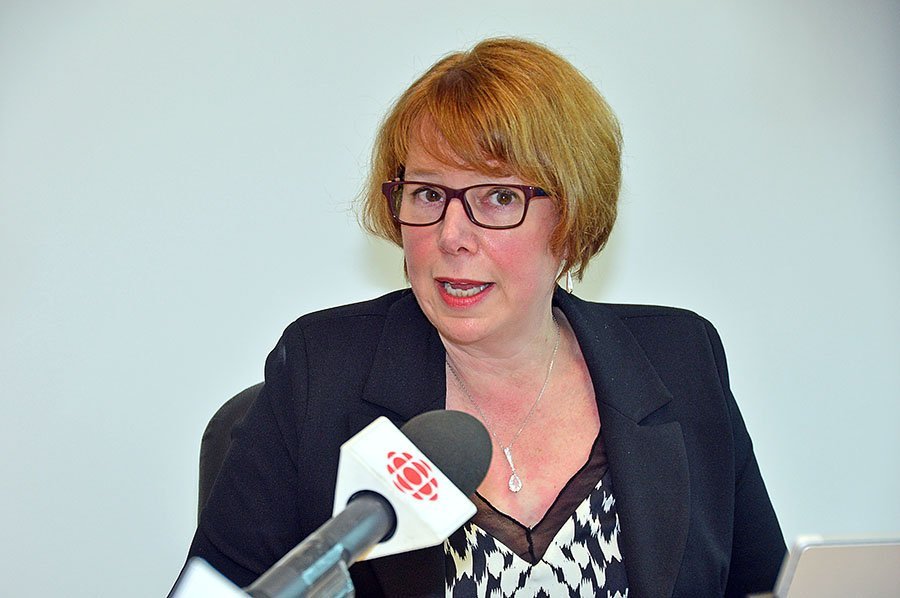
Martin C. Barry
In her 2018 report on the City of Laval’s overall performance, auditor-general Véronique Boily says the absence of a specific policy to oversee the municipality’s inventory of goods, tools and equipment “is hindering the consistency of management, while periodic inventories “are not providing reliable information on the quantities held and their value.”
‘Mechanisms’ lacking
Also in the report, which was released last week, Boily added that “the mechanisms in place are not adequately protecting inventories, particularly in municipal garages where access controls are insufficient.”
In response to these and other issues, the Laval auditor-general’s office made 10 recommendations, including that an inventory management policy supported by the use of a specialized software package and the training of employees be implemented.
Boily’s remarks come following a report in 2015 that the City of Laval wasn’t taking enough precautions in overseeing its motor vehicle fuel depot at the public works yards. Boily, who came into office only last year, said her knowledge of that issue is fairly limited, although she noted that the previous auditor-general made recommendations about the fuel depot that she presumed were taken seriously by the city.
Filling up on free gas
According to Michèle Galipeau, who preceded Boily as auditor-general, at least one official from the auditor general’s office was sent out to test whether it was possible to fill up at a municipal gas pump without hindrance – and, of course, without paying. According to Galipeau’s office, there was no security of any sort at the time and they were able to take gas at most of the refueling sites maintained by the municipality.
Boily’s criticisms of the City of Laval’s inventory systems weren’t all she had to say. Regarding the city’s methods for personnel hiring, she noted that in 2014 the City of Laval adopted what she called “a relatively clear staffing policy. However, it lacks precision in certain regards,” Boily added, “including when appointments without calling for applications can be justified.”
‘Careful attention’ needed
While maintaining that her analysis of a sampling of 20 files cannot be used to generalize on all the city’s hirings, Boily said “they deserve careful attention since they reveal discrepancies with the principles of the policy or with best practices, whether in terms of identifying needs, meeting eligibility requirements or procedures.
In addition, she pointed out, the computer system that supports staffing activities within the City of Laval administration “meets only part of user requirements.” With regards to these hiring issues, the auditor-general’s office consequently made 14 recommendations in response to these findings.
With regard to the City of Laval’s urban inspection services, Boily noted that the city has few working tools and references to define and simplify management and ensure a standardized documentation of files. As well, she continued, measures are not in place to inspect at appropriate times all permits and certificates issues.

Twelve recommendations
In this regard alone, the auditor-general made 12 recommendations, including one that tools and procedures (a methodological guide, working templates, structured file prioritization and performance indicators) be implemented to ensure inspection activities are conducted more efficiently.
For her 2017 report, Boily audited the city’s financial statements, as well as those of the Société de transport de Laval and the Office municipal d’habitation de Laval. As well, she conducted a compliance audit of the City of Laval’s overall real taxation rate. Boily issued generally favourable statements for each of these audits.
Recommendation compliance
A review of the auditor-general office’s recommendation follow-up process aims to ensure that the city’s various administrative units implement actions plans to address the recommendations made by the office within a maximum period of four years. According to Boily’s report, the office obtained action plans for all the recommendations made in the 2016 annual report.
Boily’s office also measured the rate of implementation of the recommendations after a period of four years. As of last Dec. 31, the rate was 86 per cent, compared to 96 per cent and 98 per cent for the four-year periods ending Dec. 31, 2016 and Dec. 31, 2015. Boily said the decrease was mainly due to the audit of the 3-1-1 call centre performed in 2013, for which only five out of 12 recommendations were implemented to the satisfaction of the auditor-general’s office.



